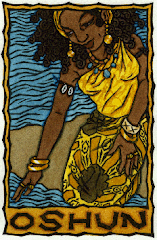Shirin Ebadi says she has been threatened by the Iranian authorities
Iranian human rights lawyer Shirin Ebadi says the Nobel Peace Prize medal she won in 2003 has been confiscated.
The medal and accompanying diploma were taken from a bank box in Tehran about three weeks ago on the orders of Iran's Revolutionary Court, she said.
Ms Ebadi, who has criticised Iran's recent disputed election and the subsequent treatment of protesters, said her bank account was also frozen.
Iranian authorities have not made any official comment on the issue.
Norway, which presents the award, said it was "shocked", by the confiscation.
The country's foreign ministry said it was the first time national authorities had taken such action.
Undeterred
Ms Ebadi told the Associated Press that her French Legion d'Honneur award and a ring given by the German association of journalists were taken along with the Nobel prize.
| Shirin Ebadi |
Speaking in London, she said the Iranian authorities had also demanded taxes on the $1.3m (£800,000) she was awarded, but that the prize is exempt under local law.
Ms Ebadi, the first Muslim women to be awarded a Nobel prize, has been away from Iran since travelling to Spain for a conference the day before the 12 June election.
The result of the election, in which President Mahmoud Ahmadinejad was re-elected, saw thousands of people protesting for several days, with hundreds arrested.
Ms Ebadi said she had "received many threatening messages" since leaving Iran.
"They said they would detain me if I returned, or that they would make the environment unsafe for me wherever I am," she said, adding that her colleagues still in the country had also been "detained or banned from travelling abroad".
But Ms Ebadi said she would not let anyone prevent her from carrying out her "legal activities" and would eventually go back to Iran.
"I will return whenever it is useful for my country," she said.
'Unheard of'
Mohammad Ali Dadkhah, a spokesman for Ms Ebadi's human rights group, said the prize money had been used "to help prisoners of conscience and their families".
 The election result was followed by days of protest and hundreds of arrests |
"The account has been blocked by the officials and they do not allow withdrawals," the AFP news agency quoted the lawyer as saying.
Mr Dadkhah said both the blocking of the account and the confiscation of the award were illegal under Iranian law and that the move was "politicised".
In Norway, where a committee chooses the annual recipient for the peace prize, Foreign Minister Jonas Gahr Stoere said: "Such an act leaves us feeling shock and disbelief."
The ministry summoned Iran's charge d'affaires to protest about the confiscation.
The Norwegian ministry said it was also concerned about the alleged beating of Ms Ebadi's husband in Tehran, with Mr Stoere saying the "persecution of Dr Ebadi and her family shows that freedom of expression is under great pressure in Iran".
The Norwegian Nobel Committee's permanent secretary, Geir Lundestad, said the move was "unheard of" and "unacceptable", Associated Press reported.







